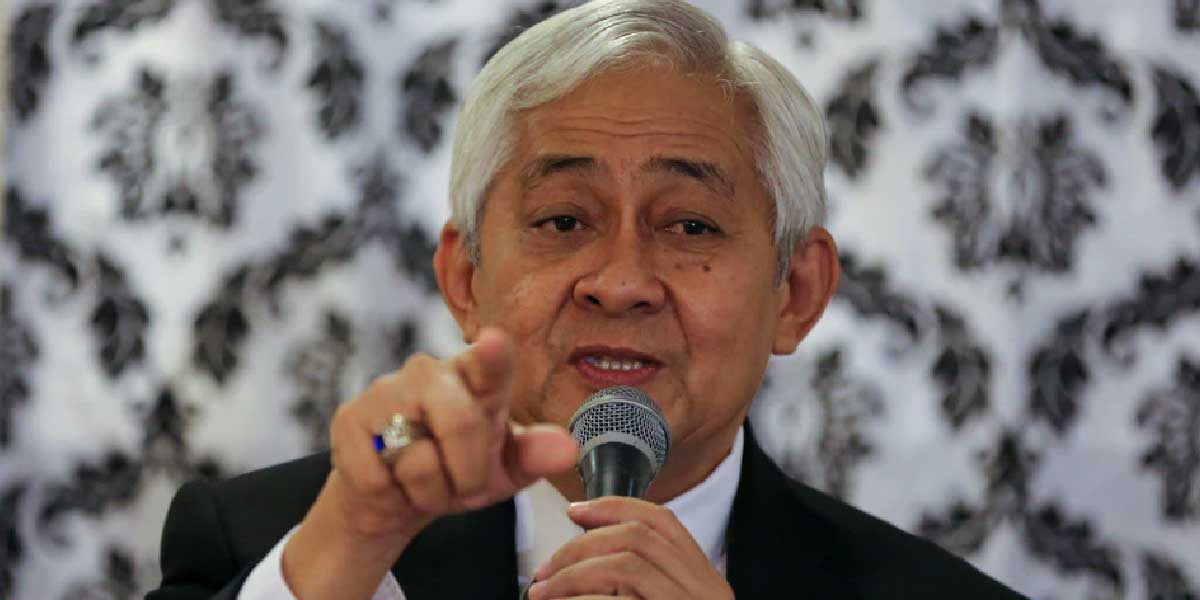
By Joseph B.A. Marzan
Retired Ilonggo Supreme Court Justice Francis Jardeleza advised the public to relieve themselves of the notion that magistrates of the high court were ‘gods of Padre Faura’ who ultimately decide on their fate.
Jardeleza issued the statement during a virtual talk Thursday hosted by the law schools of the University of San Agustin, Central Philippine University and West Visayas State University.
He expressed his disdain over the moniker ‘Gods of Padre Faura’ used to describe Supreme Court justices.
“Padre Faura” refers to the street in Manila City where the court is located.
“We are not gods. We are only 1 percent of the national budget. This ‘god’ thing has grown out of proportion. The people think that everything can be solved by the Supreme Court. The Court can only act on cases and controversies,” the former justice said.
When asked about the recent spate of attacks and “red-tagging” against lawyers and judges, he explained that the Supreme Court’s powers were limited.
He mentioned the stabbing attack on Atty. Angelo Karlo Guillen of the National Union of Peoples’ Lawyers in early March.
He expounded that the High Court may be approached to act on cases of red-tagging, but there must be a respondent in the case.
He called the judicial branch of the government as the “passive branch”, only comprising 1 percent of the total national budget on average, and different from the “more active” executive and legislative branches.
“As a lawyer, I do not like red-tagging. But when you file at the Supreme Court, who is the respondent there? Not in all actions the remedy is the Supreme Court. This case of Atty. Guillen, assuming it was red-tagging, how do you find out who did it to him? You need police work,” Jardeleza said.
Jardeleza also shared his journey, from his youth in Iloilo to becoming a lawyer in private practice and serving various public posts.
He graduated with a Political Science degree at the University of the Philippines Visayas in 1970, finished his law degree in 1974 as salutatorian at the UP College of Law in Diliman, Quezon City, and obtained his Masters of Law degree from Harvard Law School in 1977.
He was in private practice and the corporate sector until 2010 before he was appointed Deputy Ombudsman for Luzon by President Benigno Aquino III. He was later appointed Solicitor-General in 2014, and as Associate Justice of the Supreme Court.
When asked about which undergraduate degree was best prior to taking up a law degree, he expressed that any degree will be okay.
Jardeleza also shunned the notion of basing the chances to become a lawyer from top schools in the capital region, saying that the goal of law students must be to pass the Bar Examinations.
As a lawyer, he was a Bar Examiner in the Political and Public International Law exam of the 2012 Bar Examinations.
“As you go through law school, what is important is you pass. It is really up to you. The Bar [Examinations] is very important. Don’t believe the people from UP telling you that the Bar [Exams] is not important. What will you do if you are from UP and you don’t pass? It’s useless if you do not pass the Bar [Exams],” he said.
The former magistrate also addressed controversies over the judiciary’s independence, stressing that while the President of the Philippines is given power by the law to appoint judges and justices, the judicial branch “still does its best to be independent” from the other branches.
He cited decisions where he went against decisions and issuances by the executive and legislative departments in both the Aquino and Duterte administrations.
He advised law students to continue studying the law and become lawyers and not to give in to fears borne by threats and attacks on lawyers.
“I know that lawyers have become a target, but if you’d like to become a lawyer, just continue to be a lawyer and continue to represent the kinds of clients you like. The best way to do it is not to cower in fear, just continue, because by cowering in fear, you give in to those who kill lawyers,” he said.



















